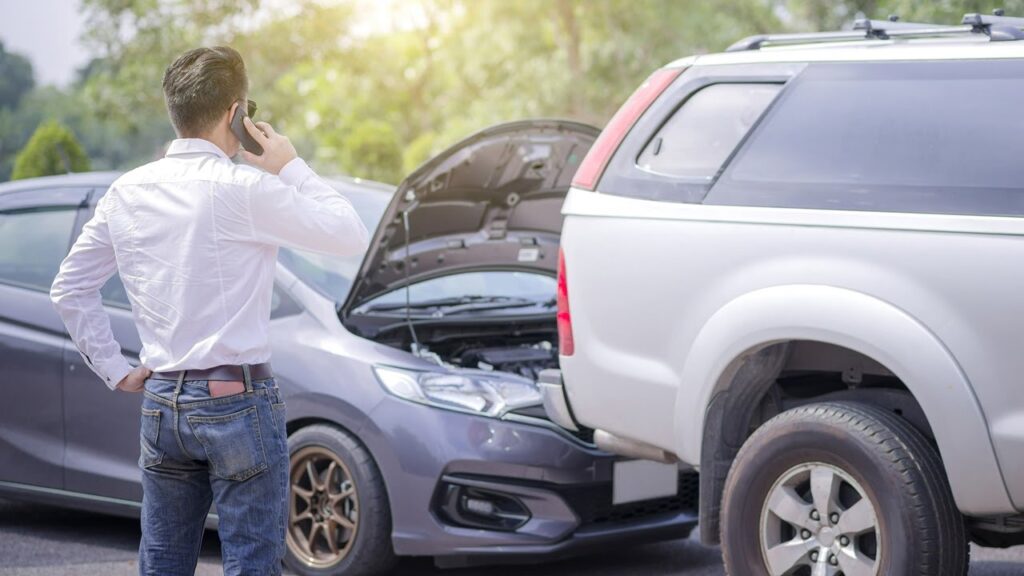Let’s be honest—no one wakes up thinking, “Today’s a great day for a fender bender.” But when the unexpected happens, you need to know exactly how to handle the curveballs insurance companies throw your way. That’s where this guide comes in.
If you’re feeling overwhelmed about the whole insurance claim process after a car crash, grab a coffee (or tea), sit back, and let’s walk through it—step by step.

That “Oh No” Moment
Boom. You’ve just been hit. The adrenaline’s pumping, your brain’s racing, and suddenly there are a million questions:
“Am I okay? Is my car totaled? What do I tell my insurance?”
You’re not alone. This is the reality for millions each year—and getting help with your car crash insurance claim can make a huge difference in how quickly (and painlessly) things get resolved.
First Things First – What to Do Right After a Crash
Check for Injuries
Your safety—and that of others—is priority number one. Call for medical help if anyone’s hurt. Even if you feel “fine,” injuries like whiplash can creep up later.
Call 911 and File a Police Report
No matter how minor the crash, always get an official report. It’ll be critical evidence for your claim.
Gather Information and Evidence
Swap info with the other driver:
- Name and contact
- License plate
- Insurance details
Also, take photos of the damage, road conditions, and any injuries.
Understanding Your Car Insurance Policy
Know the Key Terms

Your policy probably feels like it was written by Shakespeare on a bad day. Here are a few must-knows:
- Deductible – What you pay before insurance kicks in
- Liability Coverage – Pays for others if you’re at fault
- Collision Coverage – Helps repair or replace your car
- Comprehensive – Covers stuff like theft, weather, etc.
What’s Actually Covered?
Not all policies are created equal. That’s why it’s so important to understand what your plan actually includes before you file a claim.
Reporting the Accident to Your Insurer
How Soon Should You Report?
ASAP. Some policies have time limits, and delays can lead to complications—or flat-out denials.
What Info Should You Have Ready?
- Date/time/location of the crash
- Police report number
- Description of damage and injuries
- Other driver’s insurance details
Filing the Claim – Step-by-Step Guide
Submit Your Documentation
Your insurer will need:
- Police report
- Medical records
- Repair estimates
- Photos and witness statements
Cooperate with the Adjuster
They’ll investigate the crash, review your evidence, and determine liability and payment.
Monitor the Process
Stay in touch with your claims rep and follow up often. The squeaky wheel gets the grease.
Dealing with Insurance Adjusters (Without Losing Your Cool)
What Do They Really Do?
They represent the insurance company—not you. Their job is to settle fast and save their company money.
Tips for Talking to Adjusters
- Be polite, but cautious
- Don’t admit fault
- Don’t speculate
- Don’t agree to a recorded statement unless advised by a lawyer
Common Pitfalls That Could Sink Your Claim
Admitting Fault (Even Casually)
Even saying “I’m sorry” can be used against you. Stick to the facts.
Delaying Medical Treatment
If you wait too long to get checked out, they might claim you weren’t really hurt.
Giving Recorded Statements Without Advice
Insurance reps love recorded calls—they can twist your words. Don’t fall for it.
What If the Other Driver Was Uninsured?
UM/UIM Coverage to the Rescue
If you have Uninsured/Underinsured Motorist Coverage, your insurer steps in to cover the costs.
Your Options If You Don’t Have It
You might need to sue the driver directly—but chances of collecting can be slim if they’re broke.
When to Call in a Pro (a.k.a. a Car Accident Lawyer)
If the Claim Gets Denied or Delayed
A lawyer can fight denials, push things forward, and keep your insurer honest.
If You’re Injured or Facing Big Bills
Serious injuries = serious claims. A lawyer helps maximize your payout.
Real-Life Claim Story – What It Looks Like in Action
Small Fender-Bender, Big Trouble
After a minor crash, Sarah thought it was no big deal. Then came neck pain, ER visits, and $6,000 in bills. Her insurance lowballed her. One consultation with a lawyer changed everything—she walked away with a $28K settlement.
How Long Does the Whole Process Take?
What Slows It Down?
- Delayed reports
- Medical evaluations
- Uncooperative insurers
- Liability disputes
How to Speed Things Up
- Stay organized
- Respond to calls quickly
- Hire a lawyer early if things get tricky
Tips to Maximize Your Payout
Don’t Lowball Your Damages
Include:
- Lost wages
- Ongoing medical treatment
- Emotional distress
- Transportation costs
Keep Good Records (Seriously!)
Every receipt, appointment, and piece of paperwork can boost your claim.
Conclusion – You Don’t Have to Navigate This Alone
A car crash can throw your entire life off course—but getting help with your insurance claim can get you back in the driver’s seat. Whether it’s understanding your policy, dealing with tricky adjusters, or calling in legal help, you’ve got options.
So don’t wing it. Take control. Your recovery—physical and financial—depends on it.
FAQs
1. How long do I have to file a car crash insurance claim?
It varies by insurer and state, but typically within 30 days. Check your policy!
2. Will filing a claim raise my insurance rates?
It might, especially if you were at fault. But not filing at all could cost you way more.
3. What if the crash wasn’t reported to the police?
You can still file a claim, but it may be harder to prove what happened without a report.
4. Can I handle a claim without a lawyer?
Sure—but if injuries or large expenses are involved, a lawyer can help you get more money and avoid missteps.
5. Do I need to repair my car at a shop the insurer chooses?
Nope. You have the right to pick your own repair shop in most states.
6. What if I was partially at fault for the crash?
Great question. In many states, you can still recover some compensation even if you were partly to blame—this is called comparative negligence. Your payout may just be reduced by your percentage of fault. So don’t assume you’re out of luck!
7. What happens if the insurance company denies my claim?
Don’t panic. Insurance companies deny claims all the time—but that doesn’t mean it’s over. You can appeal, provide more evidence, or bring in a car accident lawyer to fight for you. Denial isn’t the final word—it’s just the start of round two.
8. Can I still file a claim if the accident happened weeks ago?
Yes, but time is of the essence. Most insurance policies have deadlines—sometimes as short as 30 days—so the sooner you file, the better. If it’s been a while, contact your insurer ASAP and explain the delay. You might still have a shot.